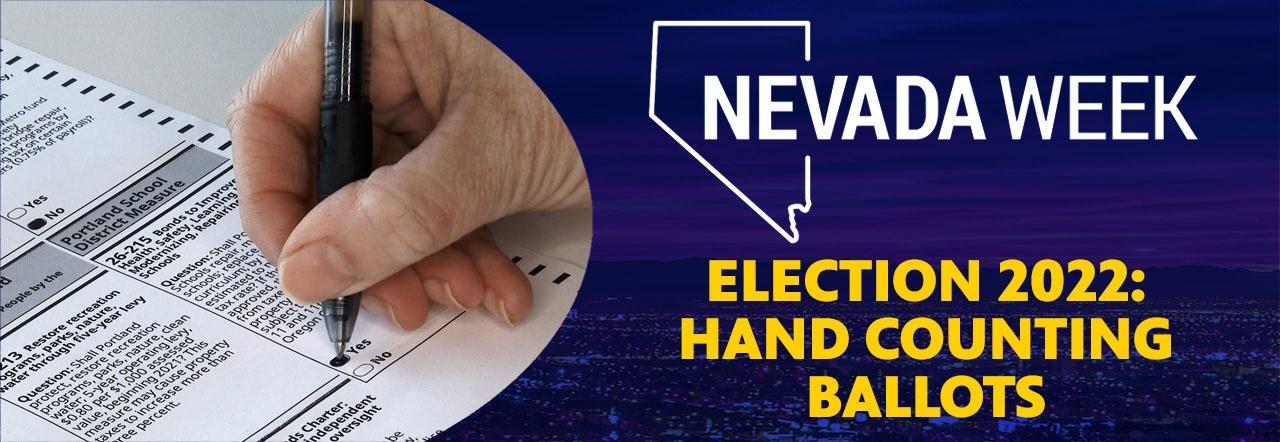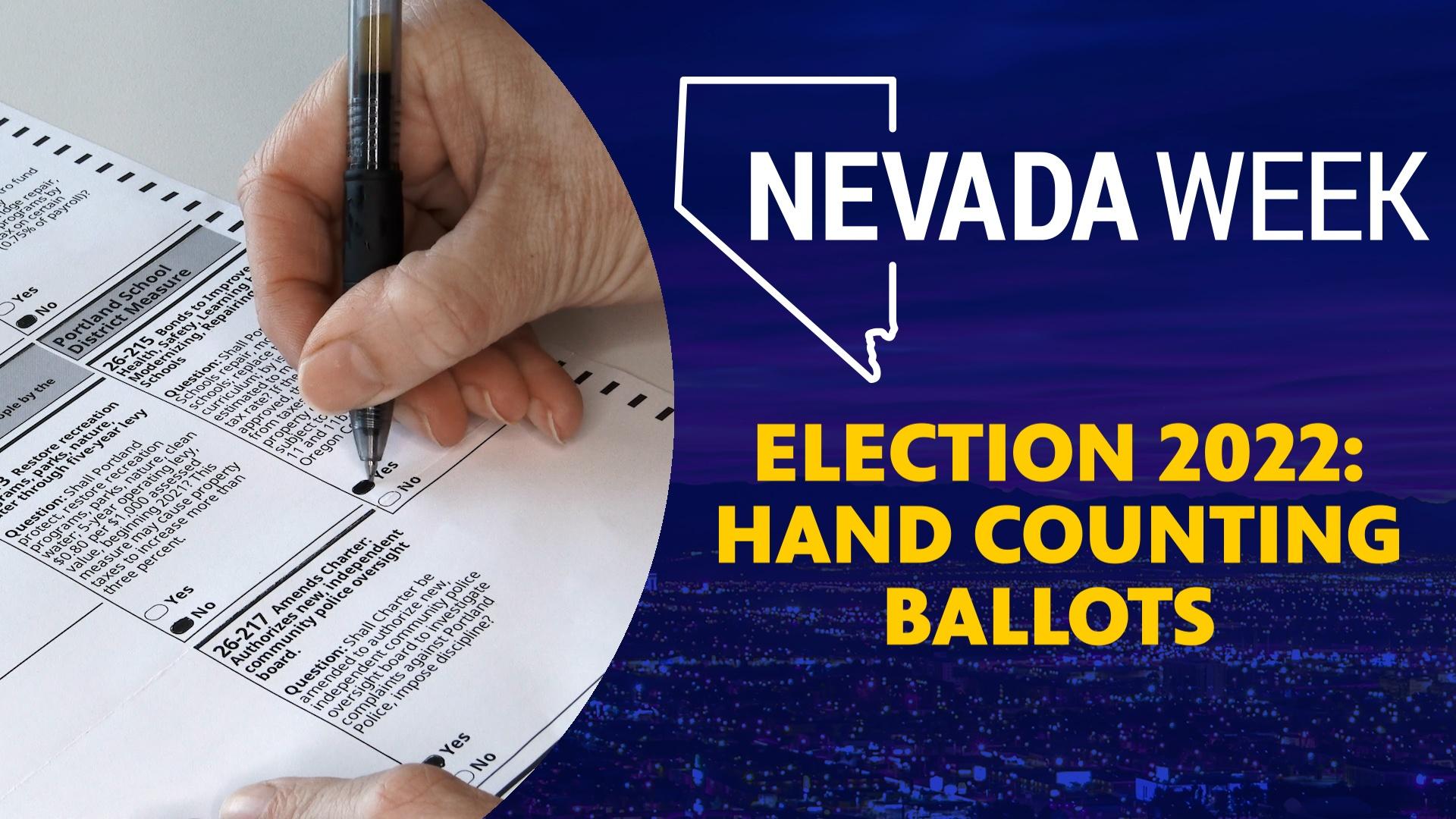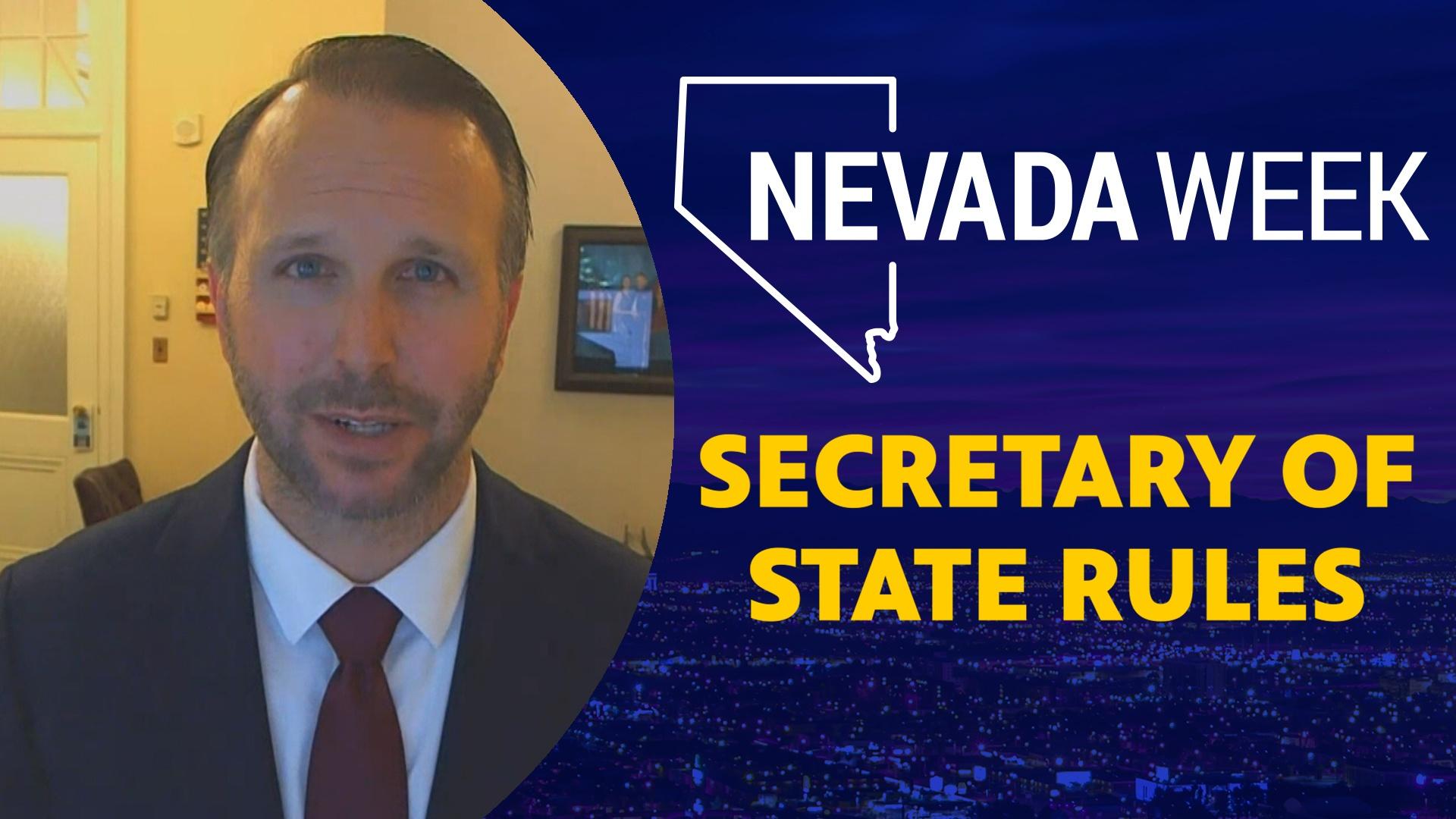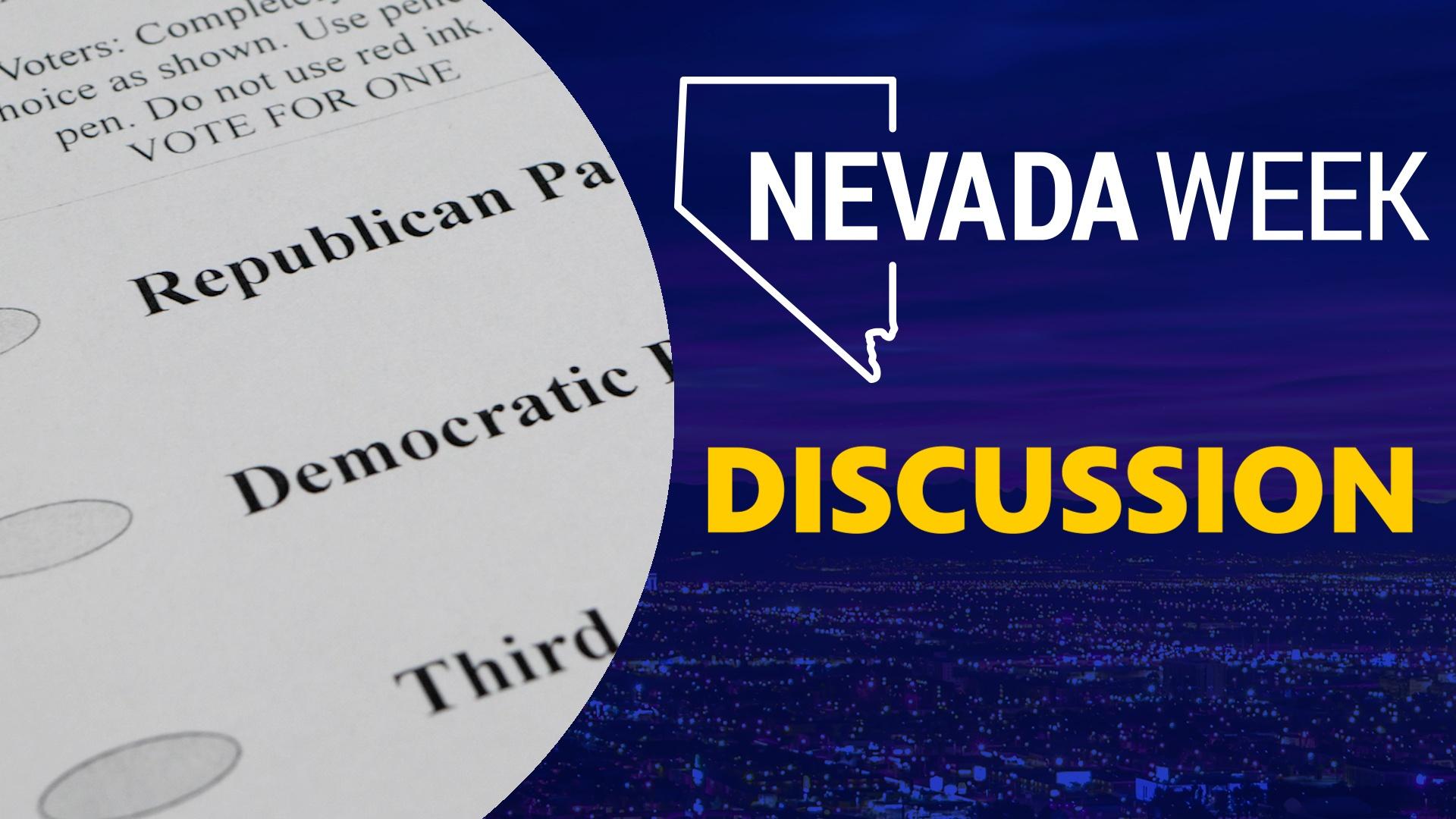Election 2022: Hand Counting Ballots | Nevada Week


The Secretary of State outlines new rules for hand counting ballots in November.



SEASON 5: EPISODE 8 | Airdate: 9/2/2022
Concerns about widespread voter fraud in 2020, despite no evidence of it, led some Nevada counties to question their voting machines and turn to paper ballots and hand counting those ballots.
In response, the Nevada Secretary of State’s office recently outlined temporary rules for the counties that do decide to use only hand counting of ballots in the upcoming election.
Nevada Week talked to Deputy Secretary of State for Elections Mark Wlaschin about the new rules. He said the reason they laid out the rules for counties that rely on hand counting as the primary method of counting ballots is that they have no legal standing to make rules for those that are using machines for the primary count and hand counting as a backup.
Wlaschin said the new rules call for hand counting will be done in batches of 50 ballots with four individuals involved in the counting. He said there will be a reading clerk, who will read out the votes from individual ballots. A verification clerk will watch the reading to make sure it is being read correctly, and two tally clerks will tally the votes of each ballot. The rules call for at least four but more could be used if the county feels it is necessary.
The limit of 50 per batch is so that it corresponds to how ballots are counted electronically. If there is a discrepancy between the hand count and the machine count, it is easier to go back and look through the ballots to find the error in a 50 ballot batch, he said.
Wlaschin believes that most people will understand quickly that mistakes in counting are more likely to be coming from human error than mistakes by machines. He said it is difficult to stare at small bubbles on a ballot for hours on end and not make a mistake.
He believes people who help with the hand count will see that the machines are accurate, “and hopefully regain confidence in the process and procedures.”
One of the biggest concerns around hand counting is the time that it takes to finish the work. Nevada law requires that county commissions or county boards of supervisors canvass the vote no later than 10 days after Election Day, which means clerks and registrar of voters have very little time to tabulate votes.
Wlaschin said part of the new rules requires counties to come up with plans in case they’re not going to make a deadline to count the votes. He wants the county clerks to have discussions with county commissioners and district attorneys about contingency plans.
The scrutiny, and sometimes outright hostility towards election workers, has caused some election workers to leave their posts in other parts of the country. Wlaschin said there has been turnover in election departments in Nevada but he said everyone involved in the process is committed to carrying out free and fair elections. He said that people who have questions about the process are usually those who are not familiar with how it works. He advised people who have questions to volunteer as poll workers to find out all the rules and regulations they have to follow and get a first-hand look at the security and redundancies that are built into the system that ensures a fair and free vote.
So far, Wlaschin said that no county in Nevada will be using only a hand count for the November election.
One county that will be using a parallel system, which means a hand count alongside a machine count, is Nye County. Earlier this year, county commissioners recommended hand counting but the longtime county clerk defended the machines and in the end, she left office over the dispute. Mark Kampf was named interim county clerk.
He explained that during the November General Election the county will be sending out mail-in ballots and providing paper ballots at polling stations for those who want to vote in person. Electronic voting machines will be available for people with special needs like a disability that makes it difficult or impossible to use a paper ballot.
He’ll then put those ballots through a tabulator, which are the same machines that have been used in previous elections. At the same time, teams of hand counters will be counting and tabulating the ballots. Kampf said if there is a discrepancy between the hand count and machine count they can go back and look for the problem and address it right away. He plans on the counts going in “lockstep.”
Despite concerns about delays in voting, Kampf is sure he can deliver the election results on time. He said he’s done several tests of the counting process, including with ballots that might cause a problem for counters, and he’s been able to meet the deadlines.
Kampf sees the process as a way to show that hand counting is a better method that will save the county money. He is looking for people, from all political parties, to be part of the effort.
“This is really about citizen engagement, getting citizens more engaged in the process not just relegating it to the clerk's office,” he said.
During the discussion, Kampf offered to include someone from the other panelist’s group, Silver State Voices, a place on those counting teams. Executive Director of Silver State Voices, Emily Persaud-Zamora, said her group would love to be part of it.
While they are willing to participate, Persaud-Zamora said they are disappointed by Nye County’s decision to move to all paper ballots for a number of reasons. She said that one of the biggest reasons is that people who use the electronic voting machines because of a disability will be immediately identifiable, which means it is no longer a secret ballot.
Kampf dismissed the concerns because he said the machines used by people with special needs have always been distinguishable from other votes.
Besides the concerns about electronic voting machines versus paper ballots, Persaud-Zamora is worried about the accuracy of hand count. She said studies suggest there is a 2 percent error in hand counting versus machine counting. While that doesn’t seem like much, she noted that some races have been determined by a very small number of votes.
She is also concerned about what a delay in results could mean. She is concerned that delayed results will only further erode people’s belief in the election system. Plus, Persaud-Zamora worries that delayed results could be used by candidates to create a false narrative about election integrity.
Persaud-Zamora also disagrees with Kampf’s assertion that hand counting saves money. She said that studies show hand counting might save on upfront costs but actually end up costing more in the end.
